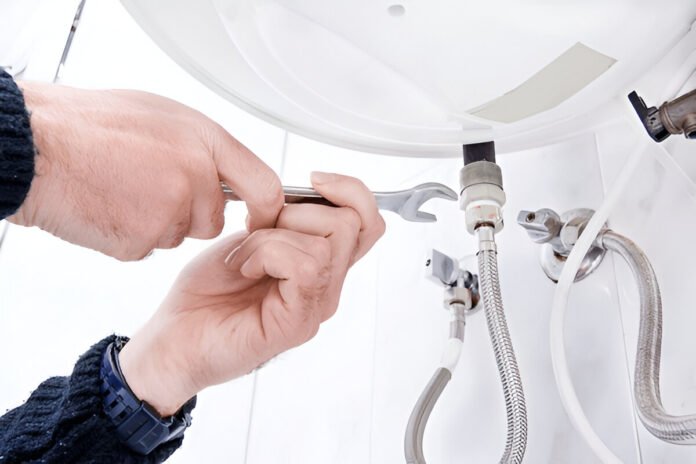A reliable hot water service is one of those modern conveniences we often take for granted—until something goes wrong. Whether it’s an unexpected cold shower, skyrocketing energy bills, or mysterious noises coming from your water heater, poor hot water system management can lead to frustration and costly repairs. Fortunately, with the right knowledge and proactive care, you can maximize efficiency, extend your system’s lifespan, and save money. In this blog, we’ll uncover the best-kept secrets to efficiently managing your hot water service, from temperature optimization to smart maintenance strategies.
Table of Contents
Understanding Your Hot Water System
Before diving into efficiency tips, it’s important to know what kind of hot water system you have. The most common types include:
- Storage Tank Heaters: These keep a large volume of water heated at all times, making them reliable but potentially energy intensive.
- Tankless (Instantaneous) Heaters: These heat water on demand, offering energy savings but sometimes struggling with high simultaneous usage.
- Heat Pump Water Heaters: These extract heat from the air or ground, making them highly efficient but requiring specific climate conditions.
- Solar Water Heaters: These use solar panels to heat water, reducing energy costs but depending on sunlight availability.
Each system has unique maintenance and efficiency requirements, so knowing yours is the first step toward optimal performance.
Optimizing Temperature Settings
One of the simplest yet most effective ways to improve efficiency is adjusting your water heater’s temperature. Many systems are preset to 140°F (60°C), which is unnecessarily high for most households and can lead to:
- Higher energy consumption (each 10°F reduction can save 3-5% on heating costs)
- Increased mineral buildup in pipes and tanks
- Scalding risks, especially for children and elderly users
For most homes, 120°F (49°C) is sufficient for comfortable use while maximizing efficiency. If you have a dishwasher without a built-in heater, you may need to keep it slightly higher (around 130°F/54°C).
Insulating Your Hot Water System
Heat loss is a major efficiency killer, especially for storage tank heaters. By insulating your tank and pipes, you can:
- Reduce standby heat loss by 25-45%
- Keep water hotter for longer, decreasing reheating cycles
- Lower energy bills without sacrificing comfort
Use an insulation blanket (jacket) for older tanks and pipe insulation sleeves for exposed hot water pipes. Just ensure you don’t cover the thermostat, vents, or top of gas heaters.
Scheduling Regular Maintenance
Like any major appliance, hot water systems need periodic check-ups to stay efficient. Key maintenance tasks include:
- Annual professional inspections to check for leaks, corrosion, and faulty parts
- Flushing the tank every 6-12 months to remove sediment buildup (which reduces efficiency)
- Testing the pressure relief valve to prevent dangerous pressure buildup
- Checking the anode rod (every 2-3 years) to prevent tank corrosion
Neglecting maintenance can lead to higher energy bills, shorter system lifespan, and unexpected breakdowns.
Addressing Hard Water Issues
If you live in an area with hard water, mineral deposits (like calcium and magnesium) can:
- Coat heating elements, reducing efficiency
- Clog pipes and reduce water flow
- Shorten the lifespan of your water heater
Solutions include:
- Installing a water softener
- Using descaling agents during maintenance flushes
- Opting for a tankless system (less prone to sediment buildup)
Upgrading to a High-Efficiency Model
If your water heater is over 10 years old, upgrading to a newer, energy-efficient model can lead to significant savings. Look for:
- ENERGY STAR® certified units (up to 20% more efficient than standard models)
- Heat pump water heaters (can be 2-3 times more efficient than electric tanks)
- Smart water heaters with Wi-Fi controls for optimized scheduling
While the upfront cost is higher, long-term savings on energy bills make it a worthwhile investment.
Using Timers and Smart Controls
If you have a storage tank system, heating water 24/7 is wasteful. Installing a timer or smart controller allows you to:
- Heat water only during off-peak hours (cheaper electricity rates)
- Schedule heating before peak usage times (morning showers, evening dishes)
- Monitor usage via smartphone apps to adjust settings remotely
Some modern systems even learn your habits and adjust automatically for maximum efficiency.
Fixing Leaks and Drips Promptly
A small leak might seem minor, but over time, it can:
- Waste hundreds of gallons of water annually
- Increase energy use (as the system reheats lost water)
- Lead to mold growth and structural damage
Check faucets, showerheads, and pipe connections regularly, and repair leaks immediately.
Adjusting Water Usage Habits
Your daily habits impact hot water efficiency more than you think. Simple changes include:
- Taking shorter showers (or installing low-flow showerheads)
- Washing clothes in cold water when possible
- Only running the dishwasher when fully loaded
- Avoiding excessive hot water use during peak hours
Small adjustments can lead to noticeable savings on utility bills.
Knowing When to Call a Professional
While DIY maintenance helps, some issues require expert attention, such as:
- No hot water (could be a faulty heating element or gas supply issue)
- Strange noises (indicating sediment buildup or mechanical failure)
- Discolored or smelly water (sign of bacterial growth or rust)
- Frequent temperature fluctuations (thermostat or dip tube problems)
Ignoring these signs can lead to bigger (and more costly) problems down the line.
Conclusion
Efficiently managing your hot water service isn’t just about comfort—it’s about saving money, conserving energy, and preventing costly repairs. By optimizing temperature settings, insulating pipes, scheduling regular maintenance, and upgrading outdated systems, you can ensure reliable hot water for years to come.
Start implementing these strategies today, and you’ll enjoy lower bills, fewer surprises, and a longer-lasting hot water system. Remember: a little proactive care goes a long way in keeping the hot water flowing efficiently!








